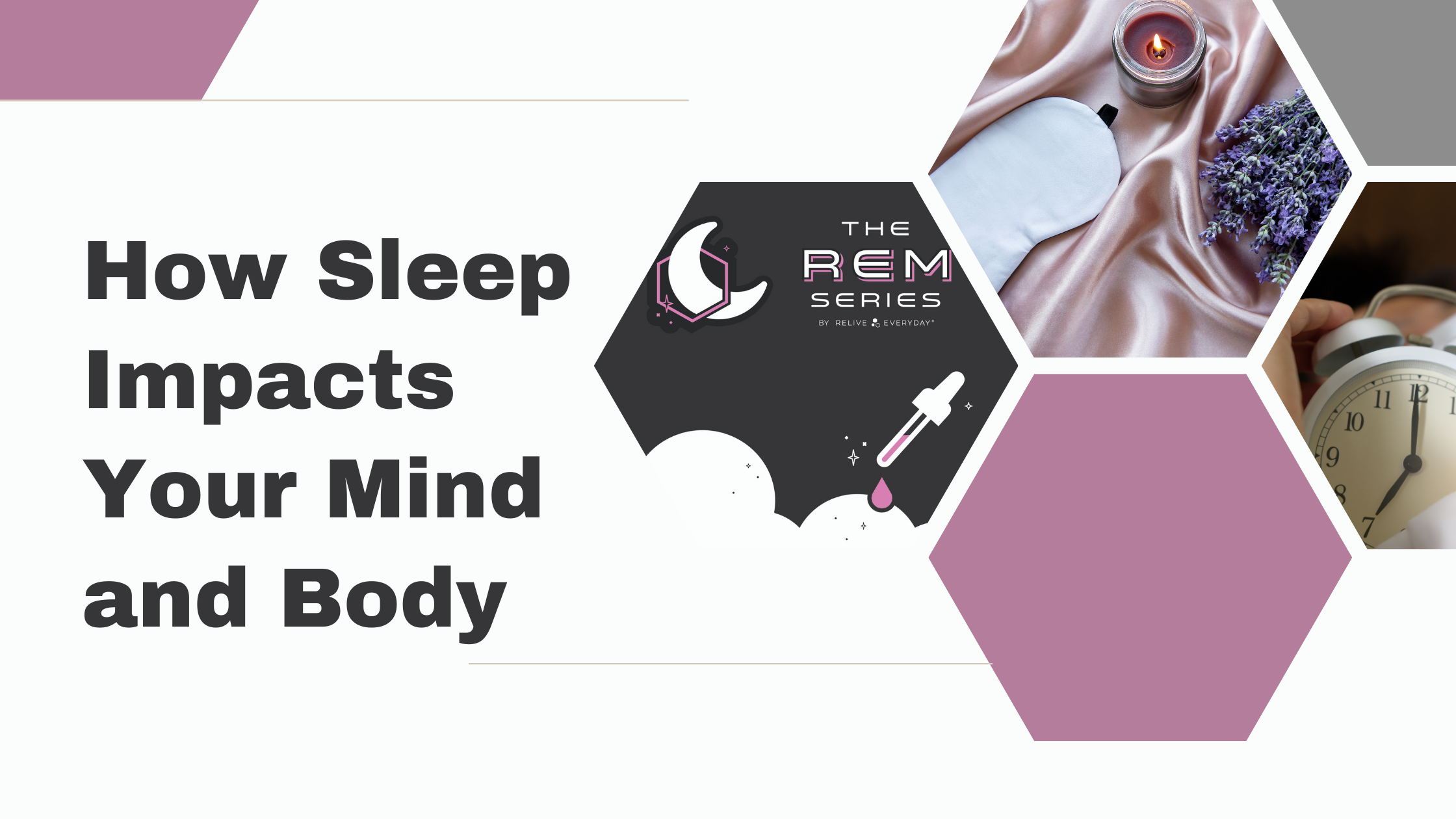
How Sleep Impacts Your Mind and Body
We all know that sleep plays a huge role in maintaining countless bodily functions. It’s how we rest and reset, similar to restarting a computer. But that analogy is far too simple for what actually goes on when we fall asleep. Sleep (and getting enough of it) has a huge role in maintaining both your mental and physical health. We’re going to look at how sleep does that in this post.
How Does Sleep Impact Your Mind and Body: How Much Sleep Should You Get?
Before we dive into how sleep can affect your mental and physical wellbeing, we need to understand exactly how much sleep you’ll need to get in the first place.
The exact amount of sleep you need will depend on several factors. But one of the biggest variables is age. For example, newborn babies need between 16 and 18 hours of sleep every day. That number gradually decreases as they age, with preschool-aged children needing up to 12 hours every day and schoolchildren at least 10. Teens need slightly less (about 9), while adults need a minimum of 7 hours of sleep each night. But we’re sure you know plenty of adults who don’t get close to that number.
Missing out on an hour or two of sleep here and there probably won’t have that much of an impact on your health. But if you miss hours upon hours of sleep over a long enough time, you can accumulate something called “sleep debt.” And when that happens, the metaphorical sleep goon always comes to collect.
When you accumulate too much sleep debt, you’ll start to feel various physical and mental difficulties. We’ll cover some of those next.
What Happens When You Don’t Get Enough Sleep: The Dangers of Sleep Depravation
You’ll probably be both horrified and surprised to discover all the ways that sleep deprivation can negatively affect your health. Not only can sleep debt cause some pretty significant physical problems, but it can also trigger a myriad of mental problems.
Mental Changes From Sleep Deprivation
We’ve all experienced one of the biggest sleep deprivation results from time to time: crankiness. If you don’t get enough sleep, you’re more likely to become angry, anxious, and irritable. There’s actually a lot more going on behind the scenes here than you’d expect, though. In fact, your brain actually sends signals at slower speeds when you’re tired. That can also impact your reasoning and decision-making skills.
That’s just one aspect of how sleep works to keep you mentally stable. One huge mental problem that can arise from lack of sleep is depression. In fact, up to 80% of those suffering from depression have insomnia, according to one study. And when you consider that up to 300 million people worldwide suffer from depression (making it the number one cause of disability), the number of people having sleepless nights comes into perspective.
Insomnia doesn’t necessarily seem to cause depression, but it worsens symptoms. Luckily, the inverse is also true. If someone suffers from depression and insomnia, fixing their sleep schedule can help reduce their symptoms.
Cognitive Changes from Sleep Depravation
In addition to impacting your mental wellbeing, poor sleep can also affect how you, your brain, and your body interact with the world. Scientists have consistently linked poor sleep with decreased reaction times. Fine motor skills also suffer from poor sleep. The combination of decreased motor skills and poor reaction time can be a severe problem, especially for people who operate equipment or vehicles.
Lack of sleep can even contribute to a phenomenon called “microsleeps.” Microsleeps are sudden, uncontrollable bouts of excessive sleepiness, powerful enough to incapacitate the person experiencing them. They can strike at any time – like when you’re driving. As a result, lack of sleep can have a significant and dangerous impact on the people who operate heavy machinery and during a daily commute. One study even showed that driving with less than 4 hours of sleep is like driving with a blood alcohol content above the legal limit.
Weakened Immune System
Lack of sleep can also significantly negatively impact your body’s ability to stay healthy. According to some research, if adults get less than seven hours of sleep per night, they’re nearly three times more likely to get sick. And once they fall ill, their immune system has a more challenging time making them healthy again.
That’s not the only way poor sleep can affect your body. Researchers have also linked sleep debt to insulin resistance. As a result, getting poor sleep for long periods of time can have a direct and significant negative impact on your overall long-term health.
Improve Your Sleep Hygiene with Plant Extracts
On the one hand, plenty of us know that we should be getting better sleep. But for some of us, that’s easier said than done. Sleep doesn’t come naturally to everyone. That’s especially true for those suffering from chronic sleep issues like insomnia.
Much like working overtime can help pay down financial debt, extra sleep (in the form of sleeping in and napping) appears to eliminate sleep debt. That can be difficult for people who have difficulty falling asleep and staying asleep in the first place.
Fortunately, our extracts may offer a solution. Research suggests that these plant extracts may have possible “therapeutic potential” for those suffering from insomnia. In addition, plant extracts appeared to hold promise as a way to improve REM sleep, improving restfulness.
Want to learn more about how to fall asleep faster, stay asleep, and improve your overall sleep hygiene? Our blog post on Sleep Solutions has some helpful tricks and tips.